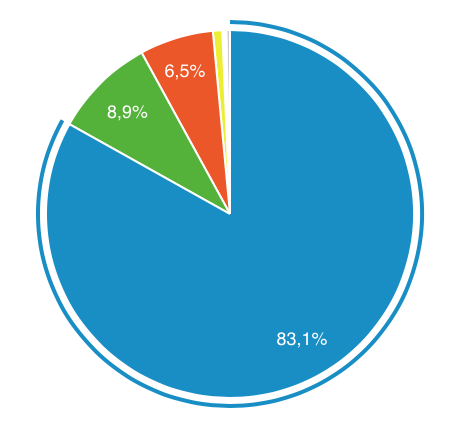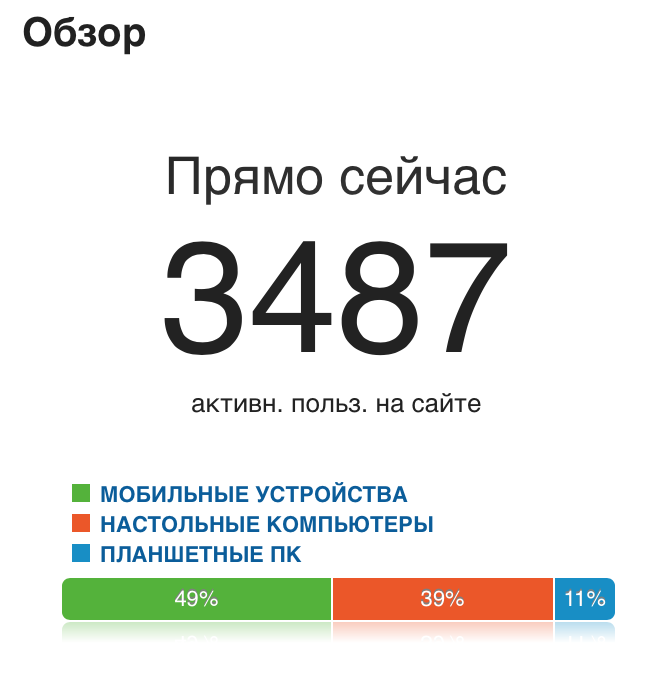How the blog Lifehacker holds 6 million people with tips

Leader and co-owner of Lifehacker blog Alexey Ponomar told Relap how to attract traffic from social networks, make advertising with editorial hands and pay authors for likes.
We in Relap love asking. When we are interested in something, please share your experience.
')
What did they talk about with Alexey:
- freelancers. Half of Lifehacker's editorial staff is working on outsourcing through the “more likes - more money” system.
- social network. Why Layfhaker loves Facebook and stopped paying attention to VKontakte.
- native advertising. Layfhaker produces a lot of good sponsor materials. How to make advertising with the editors.
- organization of work, sprints, scram, kanban. It is impossible to do everything in time. Why is that?
- why do we need a virtual enemy.
- for someone to spy.
Most of the Lifehacker texts are written on an outsourcing. There are regular authors, there are freelancers. How did you distribute them? Who more who less?
Now about half. Initially, the staff was just a couple of people, the rest worked on outsourcing. The staff began to hire when you need guaranteed quality when working with advertisers. All advertising is done only inhouse, attracting freelancers only in exceptional cases. For the same purposes, over time, we have staff designers, developers, and all the rest. Our company's business is built around advertising, and this inevitably affects the core product.
We deliberately do not separate the advertising department from the editorial board.
In fact, they often interfere with each other, because client projects for us are always in priority: the client pays money and we are obliged to work them out as efficiently as possible.
How to determine how many one author can write texts for advertisers per month?
No, we do not plan such indicators, because we are not yet able to predict the number of projects sold. And the projects themselves can be of very different complexity, we all are based on a careful individual approach to each client. The business of delivering jam to offices has some needs, adidas has others. There are quite difficult cases when a brand comes through five agencies, even the name of which needs to be clarified in a long chain of correspondences and calls.
If the editors are busy advertising, how do you control freelancers?
We do not control, but we motivate. We do not set a plan for the number of written materials and try to create conditions so that our authors are as autonomous and free as possible. We have a simple and effective reward system. It works like this: each article has a base rate, which is charged to the author immediately after publication.
The more articles gaining likes and comments, the higher the fee of the author.
Then we summarize all likes collected by the article for a certain period, we convert them according to a simple formula into money and add them to the base rate. The bonus part can be several times higher than the base. Lifehacker is quite popular on social networks, so we entered the maximum earning threshold - if the article gets 50 thousand likes (what happened), then we’ll go broke. Okay, not go broke, of course, but the lack of restrictions greatly devaluates our relationship with the authors.
This system has been working for years and has influenced all authors who have been working with us for a long time. They learn to choose sharp and important topics, to pack material, to write good headlines. We learned how to write cool, so that people would press "like". At the same time, of course, we make sure that we don’t slip into clickbiting and yellowing.
How do you choose what to post on the social network and what not?
We try to automate the routine as much as possible, so all new articles here will instantly fly through all our channels. The SMM team works separately, which does not allow our communities to turn into a swamp and is working to increase the size of communities and their effectiveness for the site. At the same time, we always remember that social networks are primarily distribution channels, they either work for you or are not needed.
VKontakte almost does not bring us traffic, VC users do not like to click on the links at all. At one time, some of them wrote to us like this - “lay out the text of the article as a whole, I will not follow your links.”

17 thousand likes on Facebook vs 536 in VK
In the public page on VKontakte, we tried to do a lot of things, but this did not lead to anything - it does not grow. Therefore, in the end, we decided to no longer invest in its development of significant resources. But on Facebook, the opposite situation, posting a link, and the reader follows it to the site. However, in a hurry to read the article and go back to your news feed, but here we are trying to keep it as we can, for example, recommendations from Relap .

Distribution of traffic shares from social networks. Blue - Facebook, green - Vkontakte, red - Twitter. Data from Google Analytics for the period August-December 2015
What better way to Facebook? Do you have a hypothesis?
Recently, the article “How Facebook algorithms work” was on Medusa. I saw it in a heap of thematic groups, a lot of experts shared it. And my SMMs got it off for me too. There are 3 paragraphs of the text, I ask them: “Have you read what is written there?” - they answer: “No”. And the whole essence of the article lies in the word magic , having read it to which you understand that these algorithms are incomprehensible to almost anyone and Facebook itself will certainly do everything so that it will continue to be “magic” for everyone. So now all our hypotheses are built on a mad cocktail of insane ideas, experimentation and intuition.
We, by the way, are increasingly seeing that the main page is not needed by anyone. Approximately 15-20% of the audience come from bookmarks or third-party sites, the rest of the traffic is search engines and social networks.
We consider ourselves to be not quite modern media, because our traffic from search engines is much more than from social networks. When it becomes the other way around, then we will be a real modern media!
Do you conduct any analytics in social networks? Tables of the best materials or the number of likes and reposts?
Be sure to look at Google Analytics on the number of transitions to the site. One of the KPIs of the SMM team is the amount of traffic from social networks per week and month. Naturally, we look at the number and growth rate of subscribers in our communities.
Consider how many subscribers brings a specific pool of publications?
Not. We consider a common top: we sum up all the metrics in social networks and display a rating. What articles for the year, month, week shot. We draw obvious conclusions about the popularity of certain themes and “swing” them. An article about homemade cookies came in - let's write about homemade cookies more often.
What metrics look at the site?
We continuously measure realtime - we track how many people are currently on the website on Google Analitics. We look at the number of views, the number of unique users, the depth of viewing, time on the site, traffic sources. Constantly compare what is happening. Day to day. Week to week. And so all 9 years of the project.

The main fetish of Lifehacker editorial staff is the number of users on the site in real time.
So far, unfortunately, we do not have a staff of mathematicians and analysts. There is such a trite dream that a genius-analyst will come, take a look at our data and say: “Do it and everything will be fine.” In the meantime, this did not happen, we are constantly experimenting and trying today to do everything a little better than it was yesterday.
How is your work team organized?
We have 3 programmers and 2 designers. Most of the tasks they have arises spontaneously in the form of advertising projects. The rest of the time, under the leadership of the product owner, they are working on the main product.
Do they have any sprints? Do you use Scrum or kanban ?
We have scrum. We are trying to live in accordance with the principles of religion, but it turns out very badly.
Do not fit into the sprint?
Not. Planning in our current conditions is a pointless exercise. For example, we lay a number of backlog tasks in a sprint. Estimate the time. But a wonderful confluence of circumstances can happen, and all plans will cancel the 3 urgent special projects that have arisen. And then we put the sprint aside.
We have not and never had investments. We spend on ourselves only the money that earned.
Of course, we have a mission and we believe in what we do. But in order to do what we love and want to do, we need money. And you need to earn them.
What is the coolest thing done last year?
We have grown continuously throughout the year. The audience doubled in a year, from three to six million unique visitors per month. And by business performance grew well.
How did the audience grow?
Search and social networks. Moreover, due to the search, oddly enough, it is much stronger, although we don’t even have a SEO manager and never have. And we also never bought any links. Just try to write on topics that will always be relevant. For example, the article “How to download videos from Youtube” now collects 50-70 thousand page views per month from a search. She has scored 1.7 million views since 2012!
To grow, you have to remain interesting, so we are constantly learning something new, we invent something. See who does what, of course. We see that someone is looking at us.
Which media do you most often spy on?
For us, observing others is something like shadow boxing. We do not compete with anyone, and we do not identify ourselves as media. There is no real opponent, but you are constantly hitting a fictional opponent and pumping skills.
It’s great to invent a real opponent for yourself and compete with it virtually.
Very simplifies the training process. For example, to force the editors to publish a review of a new startup faster than it appears on the CPU (now VC.ru - editor's note) . The emphasis is, of course, on the speed of work and understanding of trends, and not at all on a race with another edition.
There are a lot of cool projects abroad that are breaking the media market today. Create new formats, re-open the old ones. Buzzfeed space guys who break a niche for a niche. Or here Quartz was one of the first to take it and completely canceled the main page. The Verge - the gods of content, make it so that no one else does. Vox with explanatory journalism and cards. The format of the cards they seem to borrow Meduza , and did the right thing - if an idea inspires and makes you stronger, then why not use it? Try, see and measure how things that work (or do not work) with others will work for you. We must constantly be in good shape, be curious and flexible. Otherwise, oblivion and death.
Source: https://habr.com/ru/post/298242/
All Articles